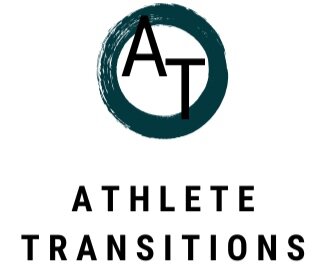
Advice for Coaches and Sports Organizations
Preparing Athletes for Transition
It is important for coaches and sporting organizations to promote all around wellness for their athletes, helping them to develop a wide variety of transferable life skills and assisting them in addressing their athletic identities and their perception of who they can become beyond their sporting careers (Giannone, Haney, Kealy, & Ogrodniczuk, 2017; Martin, Fogarty, & Albion, 2014). Athletes that successfully navigate the transition into post-sport life with high levels of wellness report having had the ability to widen their focus to include career development opportunities, a variety of physical activities, and the development of a strong support system prior to retiring (Warehime, Dinkel, Bjornsen-Ramig, & Blount, 2017).
Holistic Coaching: A whole person approach to coaching that develops all aspects of an athlete. Research has shown that adopting a holistic approach to coaching helps athletes to develop a variety of life skills that aid them in navigating life after sport. Further, a holistic approach that incorporates all aspects of wellness can help athletes develop multi-faceted identities. This aids in their ability to cope with transition, but also the day-to-day stress of competing (Pierce, Kendellen, Camiré, & Gould, 2018). Coaching that focuses both on developing athletic skills, as well as social and psychosocial well-being in and out of the sporting environment, has been shown to improve athletes’ confidence, motivation, and psycho-social skills. All of which promotes performance both in and beyond the sporting world (Holistic development and well-being of athletes; Potrac, Brewer, Jones, Armour, & Hoff, 2000).
Promoting Mental Skills Development
Gratitude
The act of expressing thankfulness for the people, things, and accomplishments in our lives and the benefits we have reaped from them, is known as practicing gratitude (Gabana, Steinfeldt, Wong, Chung, & Svetina, 2018). Gratitude can be practiced in a number of ways, it can be as simple as acknowledging feelings of gratefulness throughout our day, or as a structured as keeping a daily gratitude journal.
Practicing gratitude has been shown to have a number of positive benefits on an individual’s well-being. Engaging in gratitude has been linked to an increase in positive emotions, better coping and problem-solving skills, increased life satisfaction, and decreased distress, depression and anxiety (Chen, Wu, & Chang, 2016; Gabana et al., 2018). Gratitude has also been correlated with an individual’s ability to see and utilize available resources, while improving their perceptions of social support (Gabana et al., 2018).
Gratitude for Athletes
Having athletes actively engage in a gratitude practice as individuals or as a team, has been shown to improve the athlete’s sport, life, and team satisfaction. Further, the increased awareness and perception of support has been shown to have a positive impact on athletic performance (Gabana et al., 2018).
Mindfulness
Mindfulness, or the act of bringing awareness to the present moment in a non-judgemental way allowing for the embracing of feelings and emotions as they are, has been shown to improve overall psychological well-being. Mindfulness can be used in a number of ways to help ground an individual, potentially minimizing stress and anxiety, while heightening awareness to what is driving feelings (Josefsson et al., 2017). For athletes, mindfulness has a number of psychological and physical benefits, including improved confidence and performance and an increased ability to regulate emotions and behaviours in competition (Chen et al., 2016; Walker, 2016).
Self-Care
Self-care is the practice of actively and intentionally engaging in activities that promote overall wellness and support mental health. Offering education or training in self-care can help athletes prepare for the transition into retirement (Stellefson, Wang, Apperson, Bopp, & Zhang, 2019). Self-care includes activities that promote our physical, psychological, emotional, spiritual, and social well-being (Butler, 2019). It includes quality rest time, healthy relationships, eating and sleeping practices, and activities that help reduce stress (Heemstra, 2019). Self-care has also been shown to improve performance and help with injury prevention in athletes (Heemstra, 2019)
References:
Chen, L. H., Wu, C.-H., & Chang, J.-H. (2016). Gratitude and athletes’ life satisfaction: The moderating role of mindfulness. Journal of Happiness Studies, 18(4), 1147–1159. doi: 10.1007/s10902-016-9764-7
Gabana, N. T., Steinfeldt, J., Wong, Y. J., Chung, Y. B., & Svetina, D. (2018). Attitude of gratitude: Exploring the implementation of a gratitude intervention with college athletes. Journal of Applied Sport Psychology, 31(3), 273–284. doi: 10.1080/10413200.2018.1498956
Giannone, Z. A., Haney, C. J., Kealy, D., & Ogrodniczuk, J. S. (2017). Athletic identity and psychiatric symptoms following retirement from varsity sports. International Journal of Social Psychiatry, 63(7), 598–601. https://doi.org/10.1177/0020764017724184
Holistic development and well-being of athletes. (n.d.). Retrieved from https://www.sportdev.org/USAB/Blog/Holistic_Development.aspx
Josefsson, T., Ivarsson, A., Lindwall, M., Gustafsson, H., Stenling, A., Böröy, J., … Falkevik, E. (2017). Mindfulness mechanisms in sports: Mediating effects of rumination and emotion regulation on sport-specific coping. Mindfulness, 8(5), 1354–1363. https://doi.org/10.1007/s12671-017-0711-4
Martin, L. A., Fogarty, G. J., & Albion, M. J. (2013). Changes in athletic identity and life satisfaction of elite athletes as a function of retirement status. Journal of Applied Sport Psychology,26(1), 96-110. doi:10.1080/10413200.2013.798371
Pierce, S., Kendellen, K., Camiré, M., & Gould, D. (2018). Strategies for coaching for life skills transfer. Journal of Sport Psychology in Action, 9(1), 11–20. https://doi.org/10.1080/21520704.2016.1263982
Potrac, P., Brewer, C., Jones, R., Armour, K., & Hoff, J. (2000). Toward a holistic understanding of the coaching process. Quest, 52(2), 186–199. https://doi.org/10.1080/00336297.2000.10491709
Walker, S. (2016). Mindfulness and mental toughness among provincial adolescent female hockey players. South African Journal of Sports Medicine, 28(2), 46–50. https://doi.org/10.17159/2078-516X/2016/v28i2a1576
Warehime, S., Dinkel, D., Bjornsen-Ramig, A., & Blount, A. (2017). A qualitative exploration of former college student-athletes’ wellness. Physical Culture and Sport Studies and Research,75(1), 23-34. doi:10.1515/pcssr-2017-0018















